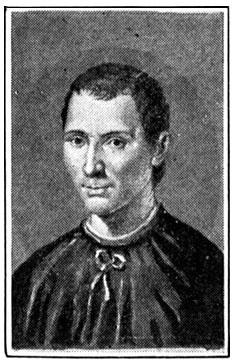
Office: HGH 210; phone: (408) 924-5378
Email: wooda@email.sjsu.edu
Web: http://www.sjsu.edu/faculty/wooda

|
Dr. Andrew Wood Office: HGH 210; phone: (408) 924-5378 Email: wooda@email.sjsu.edu Web: http://www.sjsu.edu/faculty/wooda |

Up until now, we've spoken of modernity without clearly defining the term. Is it strictly a chronological indicator? A "place" in time where we happen to live? Those who study the relationship of communication, self, and society tend to believe that modernity is a way of looking at the construction of individuals. We can best understand this concept through a review of "classical" or pre-modern self. The classical self is defined by his or her ability to achieve what the state labels good and best. The classical self is defined according to teleology, a naturalized set of assumptions about our place in the larger scheme of things. Such a philosophy is not limited to a particular time of human history, however. Indeed, there are plenty of authors such as Bill Bennett and Alasdair MacIntyre who argue persuasively that such values have always constituted the hallmark of advanced civilization.
Modernity, then, serves as less of a marker of time than as a way of looking at the self - a way that questions the existence of virtue outside of human imagination. This isn't to argue that modern philosophers negate the existence of virtue. Instead most argue that man, not some objective truth, is the measure of all things. One might argue that the deists of the eighteenth century illustrated the impact of this perspective on religion by arguing that God may exist, but that he plays no role in human affairs. God is, the deists claim, a watchmaker who set the universe in motion by winding up the spring and releasing its energy. What we do with his creation is quite up to us.
What does Machiavelli has to do with any of this? Our reading introduced us to a perspective on the individual illustrated by the idea of the armed prophet. The person who would be a prince, a fully "actualized" person in contemporary-speak, must learn from the good examples set by others - but, ultimately, he must be willing to dispense with old forms of ethics and behavior. Such a task is difficult, of course: "there is nothing more difficult to take in hand, more perilous to conduct, or more uncertain in its success, than to take the lead in the introduction of a new order of things" (chapter 6). The armed prophet, therefore, must be willing to use force, to be brutal if necessary to ensure the success of his vision. Communication is no longer a means of teaching virtue, but of shaping its definition. See chapters 15, 16, and 17 to learn more about this concept.
What of fortune and will? Here, Machiavelli outlines two rough halves of human agency. He admits that we are subject to fortune, to mere chance. However, in chapter 25 of the Prince, he argues that half of our experience is shaped by will, the human ability to stand outside of naturalized or teleological limitations. The relationship between fortune and will becomes troublesome to contemporary readers when Machiavelli likens the former to a women who must be beaten down by the man of will. How shall we make sense of such a claim? Can we find examples in contemporary society in which fortune is defined as a force of nature that must be tamed - and find parallel with individuals or groups who have been similarly defined?
The modern man posited by Machiavelli was designed to solve a political problem. "Italy" as a group of people sharing the same government and language was not a nation; it was a collection of loosely connected principalities and petit regimes that was in constant struggle. Outside governments, mercenaries, religious leaders, and the like used Italy as a geopolitical playground to plunder and pillage. Looking at his homeland, Machiavelli said in effect, "there is no there there." His prince looks to our modern age and finds similar struggles. Multiple media and outside influences challenge our definition of self. What response does he offer? More specifically, how would one be a "prince" today?
Off-campus Resource
Philip Grose, Machiavelli Online: Web-based information on the Italian political and military theorist
Note: These pages exist outside of San Jose State University servers and their content is not endorsed by the page maintainer or any other university entity. These pages have been selected because they may provide some guidance or insight into the issues discussed in class. Because one can never step into the same electronic river twice, the pages may or may not be available when you request them. If you have any questions or suggestions, please email Dr. Andrew Wood.